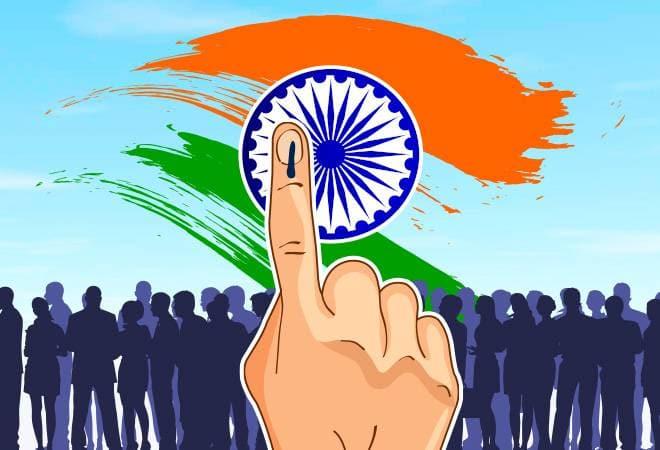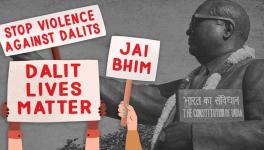Elections 2019: Can There Be a Good Candidate From the BJP?

Representational Image. Image Coutesy: Business Today
There is a troubling tendency that seems to be growing as the elections progress, which is evident in how sections of the media view and portray candidates, in opinions expressed in articles and on social media, as well as through the petitions and letter by members of the so-called civil society. Day in and day out, we’re bombarded with headlines proclaiming which candidates deserve to win, “the voice that needs to be in the parliament”, appeals to vote for best candidates and not for parties, how Pragya Thakur’s candidature is egregious on BJP’s part, pardonable if BJP were to withdraw her candidature. All of these views fundamentally stem from an understanding of who a “good candidate” is. In this article, we have examined some of the ways in which the ideas of a “good candidate” have been expressed, their manifestations, implications and fallacies. We also try to propose how candidatures in democratic processes can still be evaluated without falling into the liberal individualist trap.
The Good Liberal Candidate
A common practice, that has long been popular among liberals in the media and the middle-class is to speak of good candidates in terms of their “qualifications”. These include, most importantly educational qualifications, criminal record, performance as an elected representative judged in terms of attendance, questions asked, and bills sponsored. The elections then seem to be job interviews and the voters must decide on the basis of the qualifications of the candidate. These qualifications as a yardstick for judging a candidate, upon close examination, can reveal themselves to be flawed, exclusionary and undemocratic. For instance, there is little recognition of the structural factors when it comes to issues like access to education. In terms of criminal records too, there is a failure to take into account the possibility and practical existence of wanton use of criminal cases as a tool for political persecution especially against those who are leading the struggles of the working people, thus, making them ineligible to be “good candidates”. This liberal idea of a good qualified candidate emerges from the same understanding as does the idea of a meritorious student.
Moreover, the idea of a good liberal candidate seeks to focus only on the individual and relegate the party that the candidates are contesting from, to the background. To the liberal, all political parties are equal – equally corrupt, dishonest, manipulative and unscrupulous and therefore irrelevant. And with the party they represent not being a part of the criteria for defining a good candidate, it is possible for a liberal to consider candidates contesting on Aam Aadami Party (AAP), Communist Party of India (Marxist) (CPIM) and Bharatiya Janata Party (BJP) tickets as good candidates and equally worthy of being elected.
If political affiliations are pushed out of sight, it does not automatically dispel the existence of the same parties nor their incontestably significant role in the functioning of the said candidate. The candidates still remain ticket holders of respective parties and bring to the democratic processes, the programmatic values of the party. The liberals wish that perhaps everyone is already solicitous individuals floating in a non-partisan political vacuum.
The Good (or bad) Hindutva Candidate
The opposition to the Pragya Thakur’s candidature from the BJP illustrates how not only the liberal idea of a good candidate is flawed, but also that it cannot credibly oppose Hindutva and the BJP. There emerged a widespread outrage regarding her candidature following her vicious statements regarding late IPS Officer Hemant Karkare. Former bureaucrats wrote an open letter asking the PM to condemn the statements and demand that her candidature be withdrawn.
In a recent interview with The Quint, retired police officer Julio Ribeiro accused the BJP of bringing extremists like Thakur into the mainstream. “BJP is keen on including in the mainstream their extremist fringe,” he said. We ask of our reader to consider if the BJP fundamentally is not extremist? In opposing Pragya Thakur in this register, however, there seems to be an almost optimistic faith in the possibility of a relatively democratic BJP. Not only that, there seems to be a faith in and appeal to the BJP’s conscience as the way to reinstate this imagined relatively democratic character of Hindu-nationalist communal politics. The method of opposition employed (not just by the former bureaucrats but others as well) is petitioning or seeking answers from the prime minister and the BJP regarding the choice of candidate. This is an appeal to their better nature so that a more palatable candidate is fielded.
Opposing Pragya Thakur’s candidature in these terms might suggest that instead of her, there might be a better candidate from the BJP who is less stark and brash when it comes to exposing their Hindutva, is essentially a quest for finding, and potentially accepting a good Hindutva candidate. That a more qualified BJP candidate who fits the liberal idea of who a good candidate could potentially be supported.
There are two limitations to this, perhaps, well-meaning opposition. First, it falls short of discrediting the BJP as a whole for its intrinsically undemocratic and communal character because such an opposition seems more than eager to forgive if the BJP behaves better. Second, and following from the first, it is the continuation of a classic ruinous trend that believes in the myth of a softer BJP, romanticising leaders who seem to be more moderate. One should look at the nostalgia for [BJP leaders] Vajpayee when Advani posed as the new leader, sympathy for Advani when Modi took over, perhaps acceptance for Modi even, when faced with the likes of Thakur and Adityanath.
Also read: Over 70 Ex-Bureaucrats Want BJP to Withdraw Pragya Thakur’s Candidature
What such appeals and petitions to the BJP fail to recognise is that candidates like Pragya Thakur can potentially be seen as “good candidates” for the Hindutva project, because they effectively take the politics of communal polarising forward. The battle for opposition to candidates like Pragya Thakur cannot therefore be limited to opposing them as individual candidates and through exhortations to the BJP. We urge that criticism of candidates of this sort must be utilised to push back the politics of the BJP as a whole, rather than to perpetuate the myth of an extremist and moderate BJP. The BJP should be opposed not because it happens to field a particular candidate but because it is a party that it is the political wing of the Rashtriya Swayamsevak Sangh (RSS) with a belief in the establishment of a Hindu Rashtra.
Moreover, and more importantly, such a discussion should simultaneously speak of strengthening the opposition against the BJP. Here, the ‘opposition’ refers to a politically organised opposition rather than the liberal idea of “good candidates” that we discussed earlier.
The fight can only be a political one that does not see these candidates in isolation, but as part of the larger Hindutva agenda. It is only by placing these candidates in the broader agenda of the Hindutva forces and fighting them politically, that one can hope to defeat them.
The Good “Progressive” Candidate
There’s also emerged a presumably progressive voice that the social media is abuzz with. This voice views candidates exclusively in terms of their identity and calls to vote for candidates from oppressed or marginalised backgrounds. The case for greater representation of dalit, transgender people, and women in democratic institutions is urgent and indispensable for any form of progressive political struggle, and must be fought for. But, let’s pause for a moment and consider what an appeal to vote for someone because of their caste and gender does. It glosses over the political agency that these individuals have exercised in their decisions to contest on their respective political platforms. It negates their subjective political position and subsequently reduces them to their immediate identities and nothing more.
Let us consider the case of the support given to the United Democratic Front (UDF) candidate, Ramya Haridas, against PK Biju, the Left Democratic Front (LDF) candidate in the Alathur constituency in Kerala. This took form of social media support. There was a fund-raising campaign by a former director of United Nations Development Programme (UNDP) as well. The appeals do not go beyond seeking support for Ramya because she is a dalit woman contesting against Biju, a dalit man. They therefore discount the attempts Ramya has made to associate with a broader politics, perhaps having reasoned and engaged with the policies and politics of Congress, and deciding to then be a part of it and represent it, contesting as a UDF candidate. As a result of this, the implications of the politics she aligns with on the larger movement around caste and gender – for example the question of women’s right to enter Sabrimala temple – remain unquestioned. They are, in essence, stating that the political choices of the candidates from oppressed backgrounds are irrelevant. It is so then that assertions such as these offer an easy impunity to the political entities such as the Congress. But more importantly, in disregarding the political choices made by Ramya and subsequently failing to place her as a Congress candidate, these assertions, arguably, seem to believe that persons from oppressed backgrounds cannot or do not engage in political reason, do not possess the political acumen that goes into supporting or representing political parties and therefore should not be supported or opposed on those lines.
There is a difference between this understanding of a good candidate and that espoused by liberals. While the first instance advocates a meritorial idea of the individual candidate, the other embraces a socio-political idea of the individual. However, neither accounts for the active choices made by individuals to participate in democratic processes via political parties, choices to thereby endorse their programmes. In both of these, it would seem that the political parties that the candidates are contesting for, are only marginally relevant. Could that be said without any sense of unease in the present polarised times?
The Good Left Candidate
If Pragya Thakur or Ramya Haridas are to be seen as conjoined to the political platforms they offer to their constituencies, this should also be extended to the left. Thus, for the left, candidates like Kanhaiya or a VP Sanu, JP Gavit, Rama Biswas, Amra Ram and so on, are of great importance as good candidates. Not exclusively because of their education or social backgrounds, but because they are organic participants in the larger struggle against neo-liberalism and communalism, because their voices are in unison with that of the political parties that field them, and therefore effectively in unison with the interests of the those that the left advocates.
The Appeal
An article on Logical Indian ends up recommending Kirit Premjibhai Solanki, BJP candidate from Ahmedabad West, alongside Atishi from AAP and MB Rajesh from the CPI(M), as candidates “Who Deserve to Be In Parliament”. The liberal idea of a “good candidate” may not always be synonymous with good politics. While not disregarding the importance of the individual candidate’s education, clean criminal record and potential to further affirmative social-political representation, electoral support cannot exclusively be based on these. Democratic battles are collective, ideological and extensive. Political programmes, and subsequent election manifestos stemming from these programmes of the parties, we propose, must be the primary consideration for the voters. When you vote, vote for a politics, not just an individual.
Aparna Mahiyaria is a research scholar at the Drama Department, University of Exeter; Sahil Kureshi is a research scholar at Department of International Development, Oxford. Views are personal.
Also read: Elections 2019: What the SC Should Do About Pragya Thakur’s Candidature
Get the latest reports & analysis with people's perspective on Protests, movements & deep analytical videos, discussions of the current affairs in your Telegram app. Subscribe to NewsClick's Telegram channel & get Real-Time updates on stories, as they get published on our website.
























